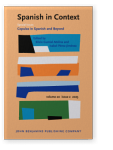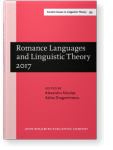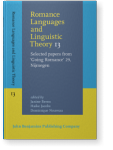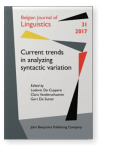M. Eugenia Mangialavori Rasia
List of John Benjamins publications for which M. Eugenia Mangialavori Rasia plays a role.
2023 Stativity and inchoativity: The undiscussed key role of estar in Old Spanish Copulas in Spanish and Beyond, Gumiel-Molina, Silvia and Isabel Pérez-Jiménez (eds.), pp. 343–366 | Article
States, long considered a homogeneous event class, have been shown to actually decompose into sufficiently distinct aspectual types. Davidsonian and Kimian statives (Maienborn 2008; Rothmayr 2009), for instance, show a major contrast in presence/absence of event-related properties, including… read more
2021 The causative-inchoative alternation (as we know it) might fall short: Crosslanguage systematicities and untapped data from Romance and Greek Romance Languages and Linguistic Theory 2017: Selected papers from 'Going Romance' 31, Bucharest, Nicolae, Alexandru and Adina Dragomirescu (eds.), pp. 239–262 | Chapter
This contribution challenges the claim that internal arguments are stable/constant arguments in the causative-inchoative alternation. It presents evidence that a third (external-argument-only) variant, produced by the standard combinatorial system, is possible (and systematic) in Romance and… read more
2018 (And yet) another proposal for ser/estar Romance Languages and Linguistic Theory 13: Selected papers from ‘Going Romance’ 29, Nijmegen, Berns, Janine, Haike Jacobs and Dominique Nouveau (eds.), pp. 177–208 | Chapter
This paper puts forward an l-syntactic account of non-trivially alternating copulas ser/estar building on incorporation of a prepositional head (p*). I propose that p* is to be seen as a locus of encoding and variation of the relevant properties whereby ser/estar diverge, but also as the element… read more
2017 Expanding the causative alternation: What about a third variant? Current trends in analyzing syntactic variation, De Cuypere, Ludovic, Clara Vanderschueren and Gert de Sutter (eds.), pp. 104–136 | Article
The causative-inchoative alternation has been a subject of much debate. It might also be a case where variation patterns that escape existing typological descriptions provide a new perspective on the problem. We analyze the variability and systematicity of alternative argument structure… read more



